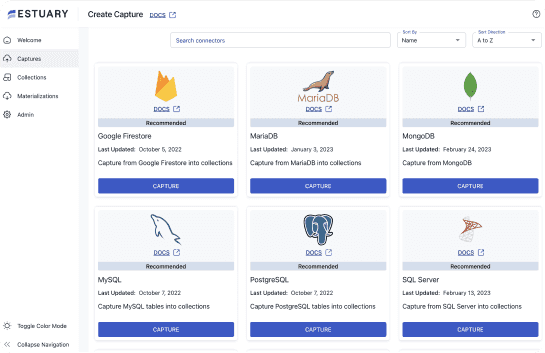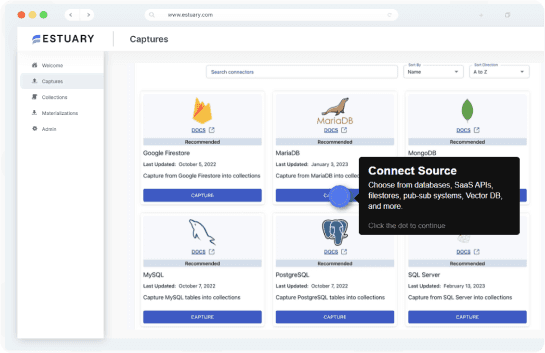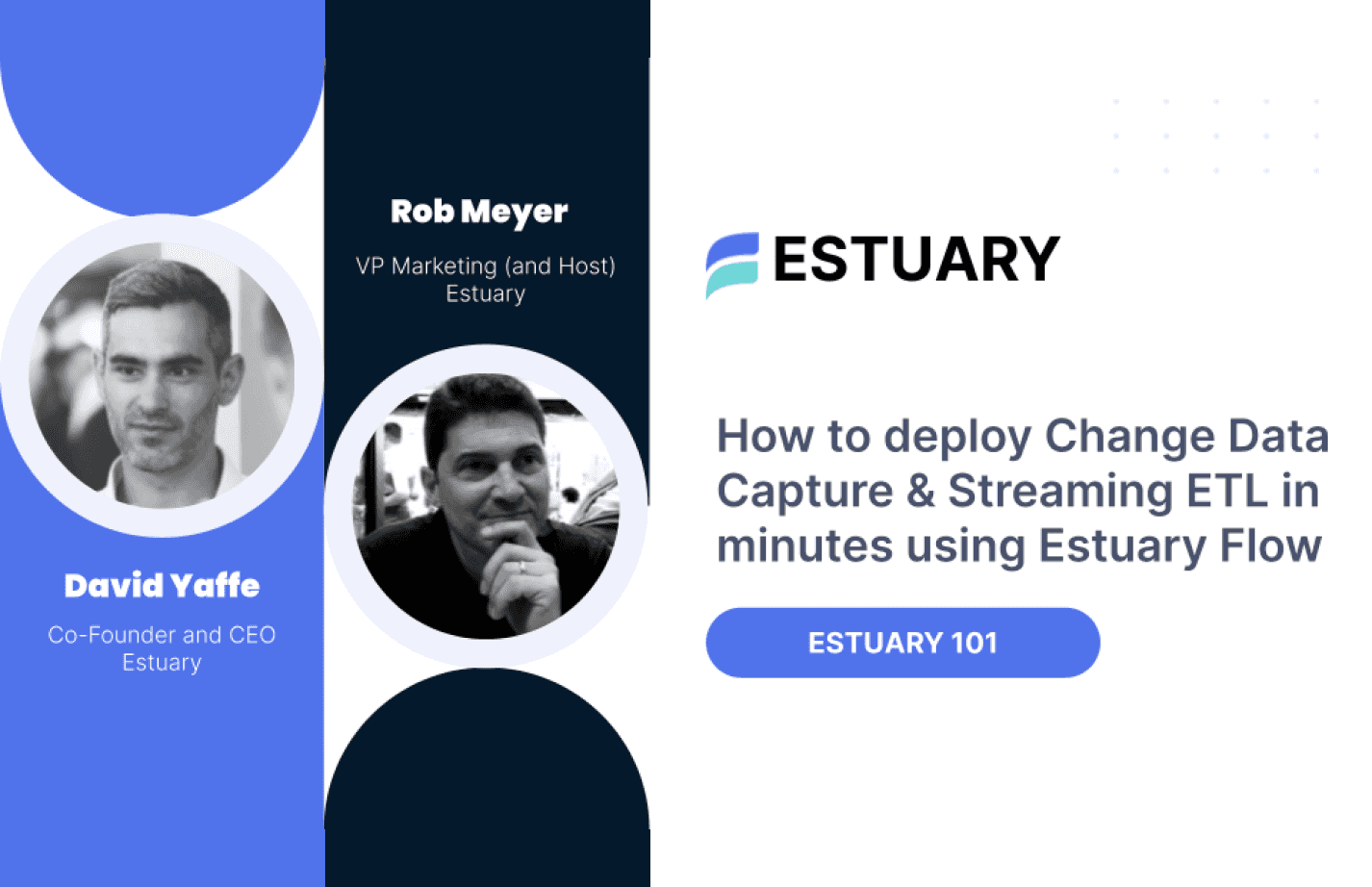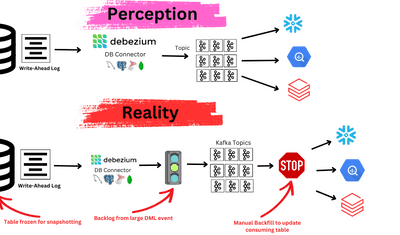
Introduction
Apache Polaris and Unity Catalog emerge as two leading data catalog solutions, each offering distinct approaches to solving these challenges. While Polaris, built for Apache Iceberg, emphasizes open standards and multi-engine flexibility, Unity Catalog, in addition to Iceberg, also leverages Delta Lake to provide automated features within the Databricks ecosystem.
Both Iceberg catalogs introduce a paradigm shift in data management by enabling direct access to data stored in cloud storage (like S3) without requiring data movement or duplicate storage. This approach not only reduces costs but also simplifies data governance and ensures consistency across platforms.
This article explores the key features, architectural differences, and practical implementations of both catalogs, helping organizations make informed decisions about their data management strategy.
What is a Data Catalog?
A data catalog platform is a software solution that provides a centralized repository for managing and governing an organization’s data assets. These platforms offer a range of features to enhance data discoverability, accessibility, and understanding.
Data catalog platforms help organizations improve data quality, consistency, and compliance by providing a single source of truth for data. Both Snowflake Polaris and Databricks Unity Catalog are data catalog platforms.
Overview of Apache Polaris
Apache Polaris Catalog (originally developed by Snowflake) is an open-source, multi-engine catalog solution that extends Snowflake’s data ecosystem by providing seamless interoperability with Apache Iceberg and other popular engines like Apache Flink, Spark, and Trino. Built on Iceberg’s open REST API standard, Polaris allows for efficient batch and streaming operations by supporting atomic transactions, ensuring consistency across diverse workloads and concurrent modifications on a single copy of data. Polaris can be hosted on Snowflake’s infrastructure or self-hosted, making it versatile for various deployment needs.
Also Read: Loading Data into Iceberg
Key Features of Apache Polaris
- Cloud-Native Design: Fully serverless, designed for elasticity, scalability, and efficient resource utilization in modern cloud environments.
- SQL Query Engine: Supports ANSI SQL for flexibility in query construction, catering to diverse analytics workloads.
- Schema Evolution: Handles schema changes gracefully without breaking existing pipelines or queries.
- Integration-Friendly: Works seamlessly with BI tools, orchestration systems, and other data platforms via APIs and connectors.
Overview of Unity Catalog
Unity Catalog (originally developed by Databricks) is an enterprise-grade data catalog built to streamline data management and governance across the Databricks Lakehouse platform. Unity Catalog centralizes metadata management, enabling data engineers to organize, access, and manage datasets across cloud storage layers, including Delta Lake and Parquet files, within a single, unified interface. One of Unity Catalog’s standout features is its native integration with Databricks’ Delta Lake, allowing for seamless schema enforcement and evolution, optimized access control, and support for complex data lineage tracking. This catalog offers fine-grained access control using SQL-based governance policies, ensuring data security at row and column levels while maintaining simplicity in policy configuration.
Key Features of Unity Catalog
- Centralized Governance: Unified metadata layer with fine-grained access controls and IAM integration.
- Open Table Format Support: Works natively with Apache Iceberg, Delta Lake, and Apache Hudi.
- Data Lineage: Tracks and visualizes end-to-end column-level lineage automatically.
- Schema Management: Organizes data assets into Catalogs, Schemas, and Tables for easy navigation.
- Cross-Cloud and Hybrid: Consistent governance across multi-cloud and hybrid environments.
- Auditing: Logs all access and modifications for compliance and security.
- Tool Integration: Seamless with Apache Spark, Trino, Presto, and other analytics tools.
- Open Architecture: Extensible with APIs and designed for customization and community contributions.
Apache Polaris vs Unity Catalog: Key Differences
To help highlight the key differences and strengths of the Apache Polaris Catalog and Unity Catalog, the following table offers a concise comparison. This will provide a clear overview of how each platform aligns with specific data management and governance needs, whether focusing on multi-engine support, or comprehensive security and compliance capabilities.
| Feature | Apache Polaris Catalog | Unity Catalog |
| Architecture and Core Features | Built on Apache Iceberg's REST API standard, supports batch and streaming operations, supports atomic transaction, Primary format is Iceberg | Built on Delta Lake architecture, native integration with Databricks ecosystem, automated optimization features, primary format is Delta Lake |
| Data Governance and Security | Basic access controls through Iceberg, transaction-based governance, metadata versioning, manual schema management, integration with cloud IAM | Fine-grained access control, SQL-based governance policies, automated schema evolution, built-in data quality features, Unity Catalog-specific security |
| Integration and Interoperability | Multiple engine support (Spark, Flink, Trino), Cloud-agnostic deployment. REST API-based integration, open format compatibility | Optimized for Databricks ecosystem, strong cloud storage integration. Native Delta Sharing support, limited external engine support, deep Delta Lake integration |
| Use Cases | Multi-engine environments, open-source focused organizations, cross-platform data sharing, flexible deployment needs, vendor-independent architectures | Databricks-centric architectures, enterprise-scale operations, real-time analytics focus, automated data management needs, strong governance requirements |
How to Use the Two Catalogs
Working with Apache Polaris
Supported Data Types and Formats
- Primary Format: Apache Iceberg
- Additional Formats: Parquet, ORC, Avro.
- Supports structured and semi-structured data
- Complex data types (arrays, maps, structs)
-- Create Iceberg table in Polaris
plaintextCREATE TABLE polaris_catalog.schema.table (
id BIGINT,
data STRING,
timestamp TIMESTAMP
) USING ICEBERG;
-- Query using different engines
-- Spark SQL
SELECT * FROM polaris_catalog.schema.table;
-- Flink SQL
SELECT * FROM catalog.schema.table;
-- Trino
SELECT * FROM iceberg.schema.table;Working with Unity Catalog
Supported Data Types and Formats
- Primary Format: Delta Lake
- Additional Support: Parquet (read/write), CSV, JSON (read)
- Native Delta Lake optimizations
- Support for structured data types
- Unity Catalog metadata types
Query Engine Integration
-- Create Delta table in Unity Catalog
plaintextCREATE TABLE unity_catalog.schema.table (
id BIGINT,
data STRING,
timestamp TIMESTAMP
) USING DELTA;
-- Query using Spark SQL
SELECT * FROM unity_catalog.schema.table;
-- Python with Spark
from pyspark.sql import SparkSession
spark.table("unity_catalog.schema.table")Working with Delta Tables
from delta.tables import DeltaTable
plaintext# Write operations
df.write \
.format("delta") \
.mode("append") \
.option("mergeSchema", "true") \
.saveAsTable("catalog.schema.table")
# Table operations
deltaTable = DeltaTable.forName(spark, "catalog.schema.table")
deltaTable.optimize().executeCompaction()
# MERGE operations
deltaTable.alias("target") \
.merge(updates.alias("source"), "target.id = source.id") \
.whenMatched().updateAll() \
.whenNotMatched().insertAll() \
.execute()Key Feature Comparison of Apache Polaris and Unity Catalog
The table below summarizes a feature comparison between Polaris and Unity Catalog:
| Feature | Polaris | Unity Catalog |
| Format Support | Iceberg native, multiple formats | Delta Lake optimized |
| Query Engines | Multiple engines (Spark, Flink, Trino) | Primarily Spark-based |
| Schema Evolution | Explicit management | Automatic evolution available |
| Performance Features | Manual optimization | Automated optimization |
| Transaction Model | Explicit transaction control | Automatic transaction management |
Each catalog's usage pattern reflects its architectural philosophy. In general, Polaris emphasizes flexibility and explicit control, and Unity Catalog focuses on automation and integration.
Cost-Efficient Data Ingestion Through Catalogs
Next, we will be looking at the benefits of data ingestion through using the data catalogs:
Reduced Data Movement
Both Unity Catalog and Apache Polaris enable a powerful and cost-efficient data ingestion pattern by allowing direct access to data stored in cloud storage (like S3) without requiring data movement or active compute resources during the load process.
-- Polaris: Creating an external table pointing to S3 data
plaintextCREATE EXTERNAL TABLE polaris_catalog.schema.external_table
LOCATION 's3://bucket/path/to/data'
USING ICEBERG;
-- Unity Catalog: Creating an external table pointing to S3 data
CREATE EXTERNAL TABLE unity_catalog.schema.external_table
LOCATION 's3://bucket/path/to/data'
USING DELTA;
Versus for the traditional approach:
-- Traditional Snowflake ingestion
COPY INTO snowflake_table
FROM 's3://bucket/path/'
FILE_FORMAT = (TYPE = 'CSV');
-- Traditional Databricks ingestion
df.write.format("delta")
.mode("append")
.saveAsTable("databricks_table")
In the traditional approach, we have to follow this pattern:
Source → Copy to Platform Storage → Query
However, for the catalog-based approach, we can ingest data directly from source to s3 and then query directly.
Source → Write to S3 → Query DirectlyThe traditional approach has the platform storage costs, compute costs for ingestion, as well as maintenance costs associated with it. However, for the catalog-based approach, we only need to pay for the s3 storage cost, which minimizes the compute for writing and reduced maintenance associated with it.
Schema Evolution in Apache Polaris and Unity Catalog
Unity Catalog (Delta Lake) Approach
-- Adding new column
plaintextALTER TABLE unity_catalog.schema.table
ADD COLUMN new_field STRING;-- Schema versioning
plaintextDESCRIBE HISTORY unity_catalog.schema.table;-- Schema enforcement
plaintextALTER TABLE unity_catalog.schema.table
ALTER COLUMN email SET NOT NULL;-- Automatic schema evolution
plaintextdf.write \
.format("delta") \
.mode("append") \
.option("mergeSchema", "true") \ -- Automatically evolves schema
.saveAsTable("unity_catalog.schema.table")Unity Catalog's schema management is built on Delta Lake, and it offers a streamlined approach to handling data structure changes. Its automatic schema evolution feature with `mergeSchema` allows tables to adapt to new columns without manual intervention while enforcing schema validation at write time to maintain data quality. The system includes column-level constraints and built-in validation to ensure data integrity, while Delta Lake's transaction log keeps track of all schema changes for audit and recovery purposes. This combination of features makes it particularly effective for organizations dealing with dynamic data structures while maintaining strict data quality requirements.
Apache Polaris (Iceberg) Approach
-- Adding new column
plaintextALTER TABLE polaris_catalog.schema.table
ADD COLUMN new_field STRING
AFTER existing_field;-- Schema versioning
plaintextSELECT * FROM polaris_catalog.schema.table.history;-- Schema evolution requires explicit management
plaintextALTER TABLE polaris_catalog.schema.table
REPLACE COLUMN old_field new_field INT;-- Partition evolution
plaintextALTER TABLE polaris_catalog.schema.table
DROP PARTITION FIELD category;In contrast, Polaris takes a more controlled approach, requiring explicit schema changes through manual management and ensuring data consistency through transaction-based evolution.
Data Accessibility and Lineage Tracking
Data Accessibility
For both Apache Polaris and Unity Catalog, data lives in single source of truth. Data resides in one S3 location, and both Snowflake and Databricks read from same source. This eliminates data synchronization issues.
-- Polaris: Create external table pointing to shared S3 location
plaintextCREATE EXTERNAL TABLE polaris_catalog.schema.shared_table
LOCATION 's3://bucket/path/to/data'
USING ICEBERG;-- Unity Catalog: Create external table pointing to same S3 location
plaintextCREATE EXTERNAL TABLE unity_catalog.schema.shared_table
LOCATION 's3://bucket/path/to/data'
USING DELTA;
-- Same data accessible from both platformsplaintextSELECT * FROM polaris_catalog.schema.shared_table; -- Via Snowflake
SELECT * FROM unity_catalog.schema.shared_table; -- Via Databricks
By using Polaris or Unity Catalog, there is no Data Duplication. This eliminates need for separate copies in each platform, reduces storage footprint, and storage costs only for S3, not platform-specific storage.
Data Lineage
In traditional environments, tracking data lineage is often fragmented and complex. Organizations typically rely on multiple tools and manual documentation to track data movement across different platforms. For example, Snowflake users might query ACCOUNT_USAGE.ACCESS_HISTORY while Databricks users check separate system tables, leading to disconnected lineage information. This approach creates blind spots in data tracking, especially when data moves between platforms or undergoes transformations in different systems.
Apache Polaris Lineage
Polaris approaches lineage through Iceberg's transaction log and REST API, providing detailed tracking of data changes and transformations. Its open architecture allows integration with various lineage tools while maintaining consistent tracking across different processing engines.
-- Polaris lineage tracking
plaintextSELECT * FROM table_name.history;
SELECT * FROM table_name.snapshots;-- Track changes across engines
plaintextSELECT * FROM polaris_catalog.system.operation_history
WHERE table_name = 'example_table';Unity Catalog Lineage
Unity Catalog provides an integrated approach to data lineage through its Unity Catalog Lineage tracking system. It automatically captures and visualizes data dependencies, transformations, and usage patterns across the entire Databricks platform.
-- Unity Catalog lineage tracking
-- Track column-level lineage
plaintextDESCRIBE EXTENDED catalog.schema.table LINEAGE;-- View downstream dependencies
plaintextSELECT * FROM system.lineage_graph
WHERE upstream_table = 'catalog.schema.source_table';Ingestion Examples for Apache Polaris and Unity Catalog
Below are two examples of batch and streaming ingestions using Apache Polaris and Unity Catalog.
Apache Polaris
Polaris manages data ingestion through Apache Iceberg tables in a data lake environment (typically S3, ADLS, or GCS), providing a more open and flexible approach to data management.
Batch Ingestion Using Apache Spark
from pyspark.sql import SparkSession
plaintext# Initialize Spark with Iceberg support
spark = SparkSession.builder \
.config("spark.sql.extensions", "org.apache.iceberg.spark.extensions.IcebergSparkSessionExtensions") \
.config("spark.sql.catalog.polaris", "org.apache.iceberg.spark.SparkCatalog") \
.config("spark.sql.catalog.polaris.type", "rest") \
.config("spark.sql.catalog.polaris.uri", "https://your-polaris-endpoint") \
.getOrCreate()plaintext# Batch write to Iceberg table
df.write \
.format("iceberg") \
.mode("append") \
.saveAsTable("polaris.schema.table_name")
Streaming Ingestion Using Apache Flink
// Flink SQL example for continuous ingestion
CREATE TABLE source_stream (
id BIGINT,
data STRING,
event_time TIMESTAMP_LTZ(3)
) WITH (
'connector' = 'kafka',
'topic' = 'source_topic',
'properties.bootstrap.servers' = 'kafka:9092',
'format' = 'json'
);
CREATE TABLE target_table (
id BIGINT,
data STRING,
event_time TIMESTAMP_LTZ(3)
) WITH (
'connector' = 'iceberg',
'catalog-type' = 'rest',
'catalog-name' = 'polaris',
'catalog-endpoint' = 'https://your-polaris-endpoint',
'warehouse' = 's3://your-warehouse-path'
);-- Streaming insert into Iceberg table
plaintextINSERT INTO target_table
SELECT * FROM source_stream;Unity Catalog
Unity Catalog manages data ingestion through Delta Lake tables in a data lake environment (S3, ADLS, or GCS), providing robust ACID transactions and optimization features through Delta Lake format.
Batch Ingestion Using Apache Spark
from pyspark.sql import SparkSession
plaintext# Initialize Spark with Unity Catalog and Delta Lake
spark = SparkSession.builder \
.config("spark.databricks.delta.catalog.enabled", "true") \
.config("spark.databricks.unity.catalog.enabled", "true") \
.getOrCreate()# Batch write to Delta table
plaintextdf.write \
.format("delta") \
.mode("append") \
.option("mergeSchema", "true") \
.saveAsTable("catalog.schema.table_name")Streaming Ingestion Using Structured Streaming
# Define streaming source
plaintextstream_df = spark.readStream \
.format("kafka") \
.option("kafka.bootstrap.servers", "kafka:9092") \
.option("subscribe", "topic_name") \
.load()# Write stream to Delta table
plaintextstream_df.writeStream \
.format("delta") \
.outputMode("append") \
.option("checkpointLocation", "s3://checkpoint/path") \
.table("catalog.schema.table_name")Conclusion: Choosing the Right Iceberg Catalog
In this article, we deep-dived into the two Iceberg data catalogs: Apache Polaris and Unity Catalog. The choice between Unity Catalog and Apache Polaris ultimately depends on an organization's specific needs and existing data architecture.
Unity Catalog, with its tight integration with Databricks and Delta Lake, offers a more automated and managed approach, making it particularly attractive for organizations heavily invested in the Databricks ecosystem and seeking automated governance features.
On the other hand, Apache Polaris, built on open standards with Apache Iceberg, provides greater flexibility and engine independence, making it ideal for organizations requiring multi-platform support and wanting to avoid vendor lock-in.
Both catalogs represent a significant advancement in data management by enabling direct access to data in cloud storage, reducing costs, and simplifying governance. Choosing the right Iceberg catalog requires aligning its strengths with your organization’s goals, architecture, and priorities.
FAQs
1. Which Iceberg catalog is more suitable for organizations seeking to avoid vendor lock-in?
The open-source Unity Catalog is ideal for avoiding vendor lock-in as it supports multiple table formats like Apache Iceberg and integrates across cloud providers without proprietary constraints.
2. What are the cost implications of using Apache Polaris versus Unity Catalog?
Apache Polaris offers a serverless, usage-based pricing model, making it cost-effective for real-time analytics. Unity Catalog may involve additional licensing fees, especially in proprietary versions, and depends on the cloud provider's pricing structure.
3. Does Apache Polaris support schema evolution?
Yes, Apache Polaris natively supports schema evolution, enabling seamless updates to data schemas without disrupting existing workflows.

About the author
Karen is a Data Engineer with a passion for building scalable data platforms. She has experience in infrastructure automation with Terraform, modern data lake architecture and is excited to share her learnings in blog posts and tutorials. Karen is a community builder, and she is passionate about fostering connections among data professionals.












